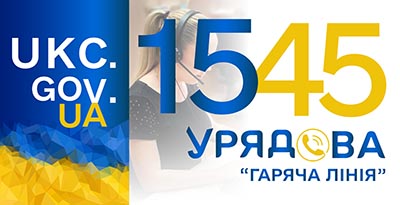In the Museum, a roundtable discussion took place on the occasion of the International Day to End Impunity for Crimes against Journalists. The discussion was dedicated to the risks and challenges faced by Ukrainian media professionals during times of war and russia’s responsibility for crimes committed against them. The event was held in the exhibition space of "Ukraine – Crucifixion" within the framework of the project by the National Union of Journalists of Ukraine titled "Shot Freedom of Speech," supported by the Museum.
The guests at the event included war journalists, journalists from editorial offices in occupied and frontline areas, media professionals who were internally displaced from temporarily occupied territories, human rights activists, and civil activists. Also in attendance were families of journalists who were either killed or taken captive, members of parliament, government representatives, and international organizations.
Sergiy Tomilenko, the Chairman of the National Union of Journalists of Ukraine, provided an overview of the main areas of the union’s work in the international and Ukrainian media space and invited the event’s guests to join the "Postcards of Solidarity" campaign. Each postcard featured the names of 25 journalists who were illegally imprisoned by russia or went missing in the occupied territories. Participants were encouraged to write words of support on the back of the postcards. All the postcards would be delivered to the families of the detained journalists to make them feel the solidarity of all Ukrainians and the journalism community.
Ilya Yevlash, the head of the press service of the Ground Forces Command of the Armed Forces of Ukraine, emphasized the unique risks that journalists face in both peacetime and wartime. Journalists, whether military or civilian, are especially needed on the frontlines and in the epicenter of battles because only their professional, direct documentation of aggressor’s crimes can hold them accountable.
Journalist Inna Varenytsia has been working on the topic of the russia-Ukraine war for many years. After the start of the large-scale invasion, her husband, photographer Max Levin, was killed by russian occupiers due to his journalistic activities. "Every person has the right to know the truth about the war, about the loss of their loved ones, and it is the task of journalists to document everything as thoroughly as possible", summarized Inna.
Oleksandr Kononenko, a representative of the Human Rights Ombudsman’s Office in the security sector, highlighted that russia commits heinous crimes against the population of Ukraine. To date, none of the international organizations have comprehensive data regarding the number of victims of human rights abuses and the number of forcibly disappeared, including journalists. Ukrainian organizations and structures, in collaboration with the media, will bring the case to the International Criminal Court.
The team from Actors For Future presented a unique performance to the participants of the roundtable. While the event’s guests shared their experiences of working during the war, the actors artistically portrayed journalists under fire, in occupation, in hiding, and in underground shelters. No stage props were needed, as the "Ukraine – Crucifixion" exhibition and the exhibited artifacts vividly conveyed the atmosphere of the horrors of war and told the story of russian crimes.
Andriy Kovalenko, the executive director of the Academy of Ukrainian Press, a local producer for foreign media, and a person who was injured during the shelling of Kharkiv in October 2023, concluded the discussion by stating, "If the world does not see it, it did not happen. If we do not fill the information space, the russians will do it for us. Right now, it is extremely important for both journalists and museums to fight on our information front and not give up our positions".
Throughout the discussion, each speaker, regardless of the community or organization they represented, emphasized the main cause of russia’s violations of all international laws, norms, and conventions regulating permissible behavior during wartime, which is impunity. Only through joint efforts can we change the situation.
You are invited to explore museum projects that highlight events of the russia-Ukraine war, which have become part of a dossier that speaks on behalf of Ukraine to the international community and will be considered by international courts.









